30 December 2024
Picture this: You're one roll away from crushing your friends in an epic tabletop battle. The stakes are high, the room is tense, and you can almost taste sweet victory. You reach for the dice, give them a shake, and then... BAM. Snake eyes. Your glorious plans go up in flames faster than a burning goblin village. Sound familiar? That, my friend, is the divine chaos of luck in tabletop games. It's what makes us laugh, cry, and sometimes flip the table in frustration.
But here's the thing—the role of chance isn’t just about those dice rolls (though they do pack a punch). Whether it’s cards, spinning wheels, or shuffled decks, luck weaves itself into our tabletop adventures in mysterious ways. Some love it, some hate it, but one thing's for sure: it's a game-changer.
In this article, we're diving deep into the wild, unforgiving, and often hilarious role of chance in tabletop gaming. Buckle up because things are about to get unpredictable!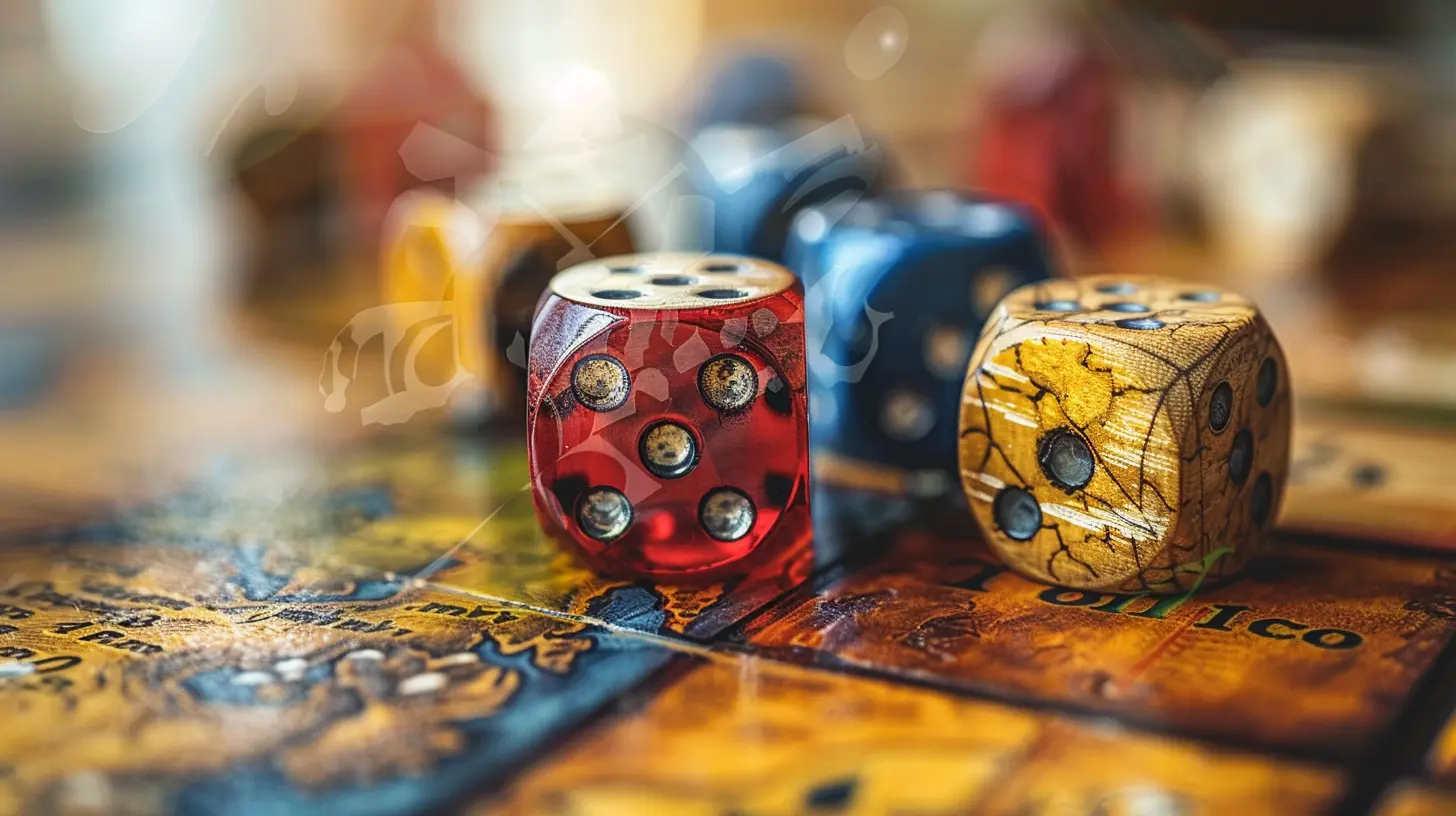
Luck vs Strategy: The Eternal Battle
Let’s be real for a second. There's always been this unspoken beef between luck and strategy in tabletop games. Hardcore strategy lovers? They live and breathe for calculated moves, airtight plans, and a sprinkle of brainpower. Luck enthusiasts? They thrive on chaos, daring moves, and those jaw-dropping moments that make everyone gasp.Take Monopoly, for example. You might have a foolproof plan to dominate the board (complete with smug predictions of your hotel empire), but one unlucky roll can land you smack on Park Place with a crushing rent fee. Strategy, meet Lady Luck—and she's in a mood.
But the kicker? True tabletop magic often lies in the balance between the two. Sure, strategy gives you control, but luck? It's the spice that keeps things interesting. No one wants a game that's predictable. Where's the drama in that? Luck levels the playing field, letting even the least experienced player pull off a shocking win. And honestly, isn't that half the fun?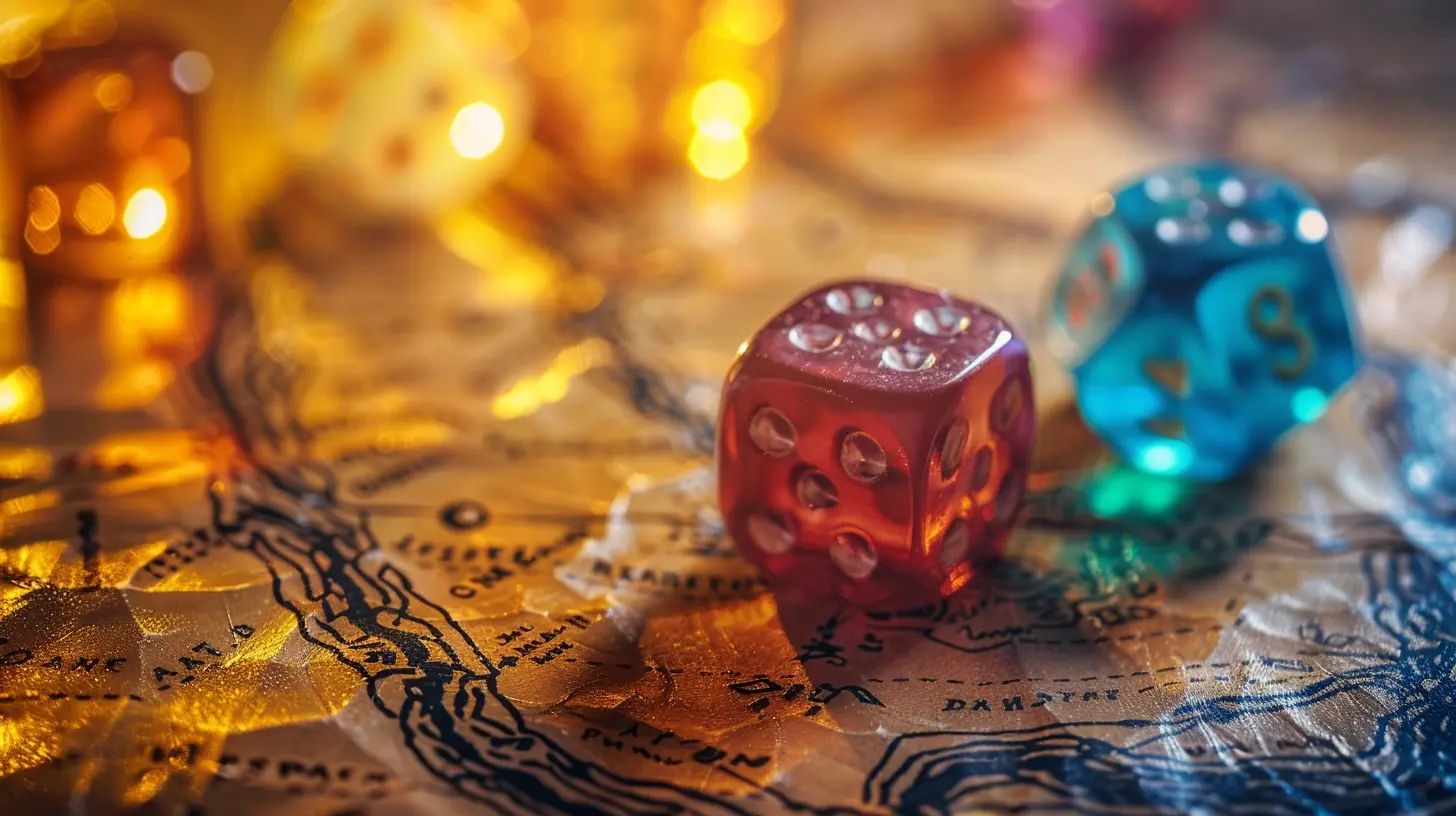
The Appeal of Unpredictability
Why do we keep coming back for more of this madness? Because tabletop games are little microcosms of life: messy, chaotic, and full of surprises. Luck mirrors the real world where nothing is ever guaranteed, no matter how much you plan. It’s like life decided to pop a squat on your game night and say, "Deal with it."Think about games like Candy Land or Chutes and Ladders. These rely almost entirely on chance, but they’re still family classics. Why? Because sometimes, it's freeing to let go of control and just ride the wave. You don't always need to strategize every turn—sometimes, it’s about embracing the randomness and seeing where it takes you.
Plus, those moments of luck (good or bad) are where the stories are born. Years later, you’ll still be talking about the time Aunt Susan pulled off that fluke win with a last-minute card draw. These are the heart and soul of game nights.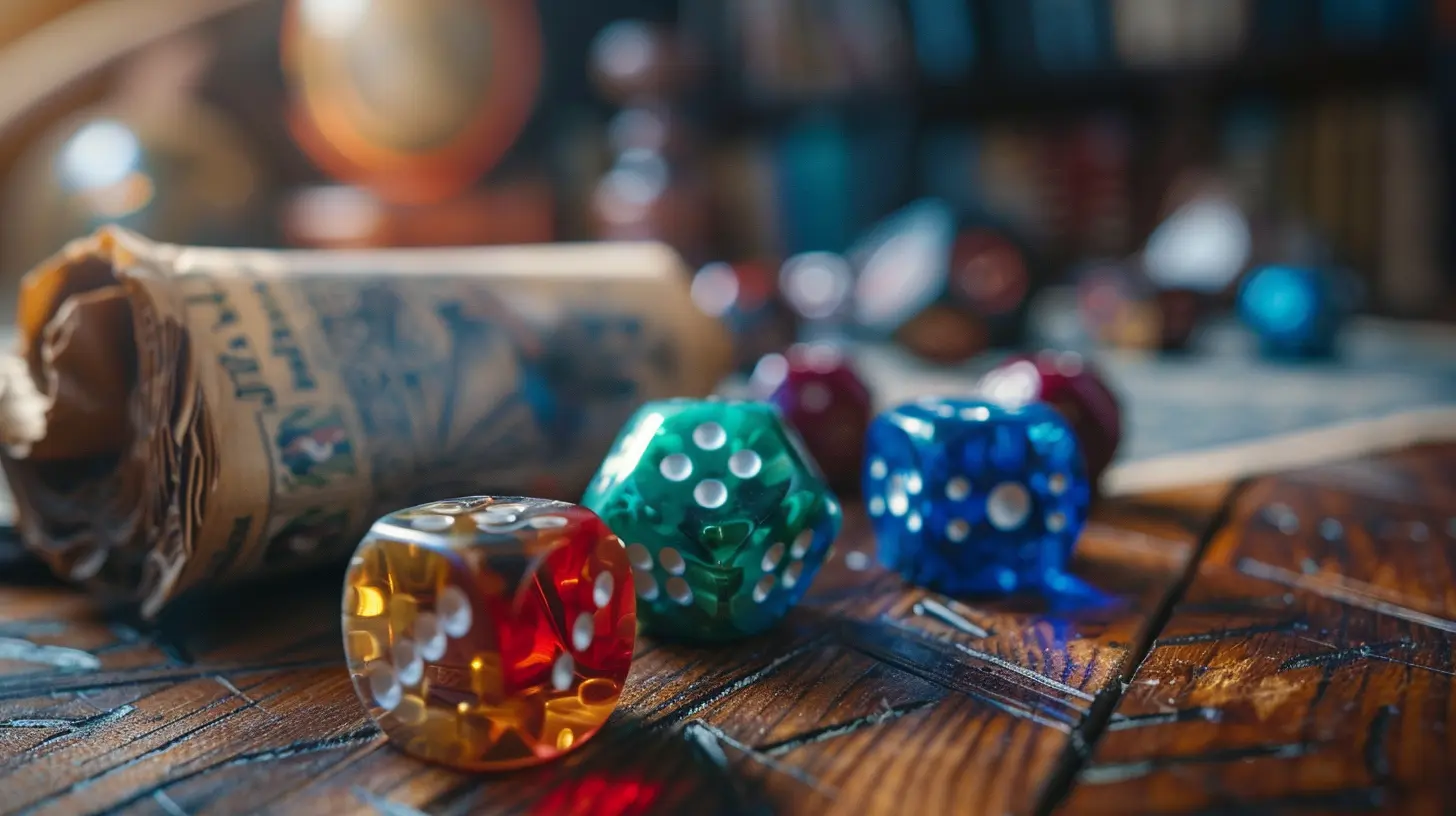
When Luck Becomes a Toxic Frenemy
Of course, as much as we love a little chaos, luck can sometimes overstay its welcome. Ever played a game where everything hinged on a single dice roll or card? Yeah, that's when the friendship with luck starts to feel... complicated.Example: Risk. You’ve spent hours conquering territories, building an army, and plotting world domination. Then, thanks to one stupid roll, you lose three armies, your foothold in Asia crumbles, and your cousin starts mocking you incessantly. Cue the rage.
And don’t even get me started on games like Munchkin, where an unlucky streak can turn into a dumpster fire of despair. While randomness adds excitement, too much of it? It's like adding too much salt to soup—it ruins the flavor. Players want to feel like their choices actually matter. Otherwise, why even try?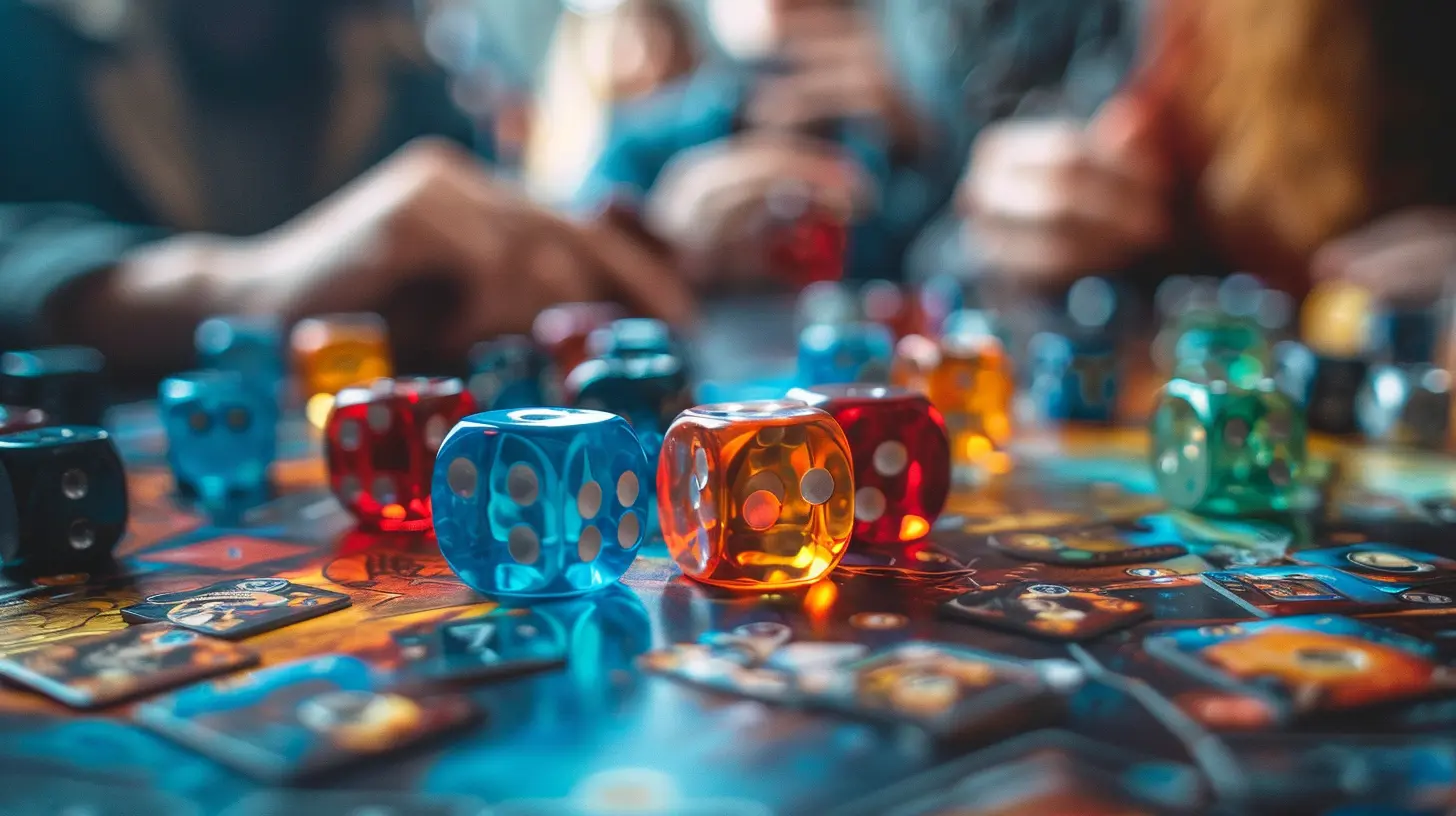
Balancing Luck: The Goldilocks Zone
Great tabletop games find that sweet spot—the "Goldilocks Zone" of luck and strategy. Not too much luck to make it infuriating, not too little to make it boring. It’s about giving players just enough control while still throwing in those curveballs to keep things lively.Take Catan (aka the king of balancing act games). While dice rolls determine resource generation, your strategic choices—like which settlements to build—can minimize bad luck. It’s the kind of game where you can curse the dice one moment and pat yourself on the back for a brilliant trade the next.
Another stellar example? Ticket to Ride. Sure, you might draw a terrible hand of destination cards, but your ability to adapt and plan routes gives you control over your destiny. That’s what good game design does—it makes both luck and skill feel like partners in crime, not mortal enemies.
Injecting Luck Without Sabotaging Fun
So, how do game designers decide how much luck to sprinkle into their creations? They use all kinds of clever tricks:1. Hidden Information: Like in Clue, where you’re solving a mystery by gradually uncovering details. Luck plays a role, but skillfully deducing the right cards is what seals the deal.
2. Push-Your-Luck Mechanics: Games like Zombie Dice are all about tempting fate. Go too far, and you might lose everything. It’s risk versus reward, and the thrill of riding the edge is downright addictive.
3. Catch-Up Mechanics: Ever notice how some games give the underdog a sneaky advantage? Mario Kart may not be a tabletop game, but its infamous blue shell mechanic is a classic example of leveling the playing field with a dash of luck.
By adding these elements, game designers make sure luck doesn’t feel like a cruel overlord, but rather a spicy wildcard.
Luck Is the Great Equalizer
You know what's amazing about luck? It’s the ultimate equalizer. Unlike skill, which can take years to develop, luck is a democratic force. Whether you're a noob or a tabletop veteran, everyone has an equal shot at rolling a nat 20 in Dungeons & Dragons. (And let me tell you, there is no high like rolling a nat 20 at the perfect moment. None.)This is why luck-heavy games are so great for bringing people together. They’re less intimidating for newcomers and provide a level playing field that levels up the fun factor. Uncle Bob, who’s never touched a game in his life, can still waltz in and wipe the floor with the family in a round of Uno, leaving the seasoned players in tears. It’s humbling—and hilarious.
Does Luck Really “Make or Break” a Game?
So, does luck ultimately make or break a tabletop game? Short answer: It depends. Long answer: It depends on the game, the players, and the vibe you’re going for.Some nights, you’ll want an intense strategic showdown like in Chess, where every move counts, and the only luck involved is whether your opponent underestimates you. Other nights, you'll be down for a chaotic dice-rolling bonanza that spirals out of control, leaving everyone in fits of laughter.
The beauty of luck is that it makes games unpredictable and, well, human. It reminds us that, no matter how much we plan or prepare, there’s always an element of surprise waiting to shake things up. And isn't that half the reason we play games in the first place?
Final Thoughts
Love it or hate it, luck is the heartbeat of many tabletop games. It keeps things exciting, levels the playing field, and creates unforgettable moments that’ll have you talking for years. Sure, it can sometimes betray you (looking at you, dice), but that's all part of the charm.At the end of the day, a little chaos is what turns a good game night into a great one. So next time you're cursing your bad rolls or cheering over a Hail Mary win, just remember: Luck is what makes tabletop games the beautiful, unpredictable mess that we love.


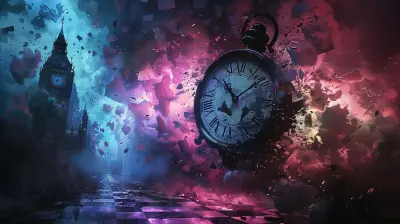
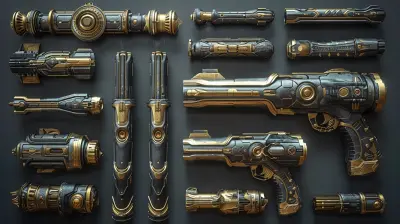


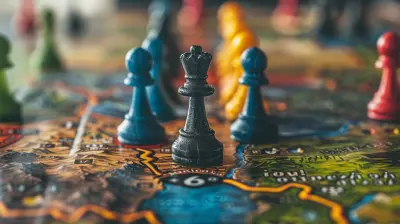


Isabelle Bishop
Luck adds excitement but can frustrate strategic players significantly.
April 5, 2025 at 2:22 PM